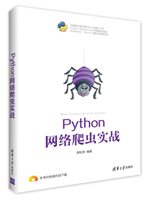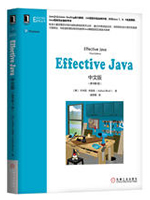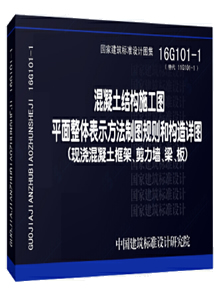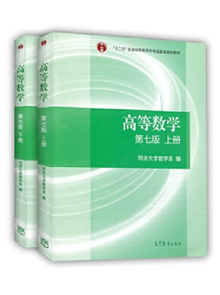给寻找编程代码教程的朋友们精选了相关的编程文章,网友梁开琼根据主题投稿了本篇教程内容,涉及到java、工具类、UUID、Map、XML、数据验证、java常用工具类代码详解相关内容,已被965网友关注,下面的电子资料对本篇知识点有更加详尽的解释。
java常用工具类代码详解
java常用工具类 XML工具类、数据验证工具类
本文实例为大家分享了java常用工具类的具体代码,供大家参考,具体内容如下
package com.jarvis.base.util;
import java.io.File;
import java.io.FileWriter;
import java.io.IOException;
import java.io.StringReader;
import java.io.StringWriter;
import java.net.URL;
import java.util.Properties;
import javax.xml.transform.OutputKeys;
import javax.xml.transform.Result;
import javax.xml.transform.Source;
import javax.xml.transform.Transformer;
import javax.xml.transform.TransformerFactory;
import javax.xml.transform.stream.StreamResult;
import javax.xml.transform.stream.StreamSource;
import org.dom4j.Document;
import org.dom4j.Element;
import org.dom4j.io.OutputFormat;
import org.dom4j.io.SAXReader;
import org.dom4j.io.XMLWriter;
/**
*
*
* @Title: XMLHelper.java
* @Package com.jarvis.base.util
* @Description:XML工具类
* @version V1.0
*/
public final class XMLHelper {
/**
* 把XML按照给定的XSL进行转换,返回转换后的值
*
* @param xml
* xml
* @param xsl
* xsl
* @return
* @throws Exception
*/
public static String xml2xsl(String xml, URL xsl) throws Exception {
if (StringHelper.isEmpty(xml)) {
throw new Exception("xml string is empty");
}
if (xsl == null) {
throw new Exception("xsl string is empty");
}
StringWriter writer = new StringWriter();
Source xmlSource = null;
Source xslSource = null;
Result result = null;
try {
xmlSource = new StreamSource(new StringReader(xml));
xslSource = new StreamSource(xsl.openStream());
result = new StreamResult(writer);
TransformerFactory transFact = TransformerFactory.newInstance();
Transformer trans = transFact.newTransformer(xslSource);
trans.transform(xmlSource, result);
return writer.toString();
} catch (Exception ex) {
throw new Exception(ex);
} finally {
writer.close();
writer = null;
xmlSource = null;
xslSource = null;
result = null;
}
}
/**
* 把XML按用户定义好的XSL样式进行输出
*
* @param xmlFilePath
* XML文档
* @param xsl
* XSL样式
* @return 样式化后的字段串
*/
public static String xml2xsl(String xmlFilePath, String xsl) throws Exception {
if (StringHelper.isEmpty(xmlFilePath)) {
throw new Exception("xml string is empty");
}
if (StringHelper.isEmpty(xsl)) {
throw new Exception("xsl string is empty");
}
StringWriter writer = new StringWriter();
Source xmlSource = new StreamSource(new File(xmlFilePath));
Source xslSource = new StreamSource(new File(xsl));
Result result = new StreamResult(writer);
try {
TransformerFactory transFact = TransformerFactory.newInstance();
Transformer trans = transFact.newTransformer(xslSource);
Properties properties = trans.getOutputProperties();
properties.setProperty(OutputKeys.ENCODING, "UTF-8");
properties.put(OutputKeys.METHOD, "html");
trans.setOutputProperties(properties);
trans.transform(xmlSource, result);
return writer.toString();
} finally {
writer.close();
writer = null;
xmlSource = null;
xslSource = null;
result = null;
}
}
/**
* 读取XML文档,返回Document对象.<br>
*
* @param xmlFile
* XML文件路径
* @return Document 对象
*/
public static Document getDocument(String xmlFile) throws Exception {
if (StringHelper.isEmpty(xmlFile)) {
return null;
}
File file = null;
SAXReader saxReader = new SAXReader();
file = new File(xmlFile);
return saxReader.read(file);
}
/**
* 读取XML文档,返回Document对象.<br>
*
* @param xmlFile
* file对象
* @return Document 对象
*/
public static Document getDocument(File xmlFile) {
try {
SAXReader saxReader = new SAXReader();
return saxReader.read(xmlFile);
} catch (Exception ex) {
ex.printStackTrace();
System.err.println("读取xml文件出错,返回null");
return null;
}
}
/**
* 读取XML字串,返回Document对象
*
* @param xmlString
* XML文件路径
* @return Document 对象
*/
public static Document getDocumentFromString(String xmlString) {
if (StringHelper.isEmpty(xmlString)) {
return null;
}
try {
SAXReader saxReader = new SAXReader();
return saxReader.read(new StringReader(xmlString));
} catch (Exception ex) {
ex.printStackTrace();
System.err.println("读取xml文件出错,返回null");
return null;
}
}
/**
* 描述:把xml输出成为html 作者: 时间:Oct 29, 2008 4:57:56 PM
*
* @param xmlDoc
* xmlDoc
* @param xslFile
* xslFile
* @param encoding
* 编码
* @return
* @throws Exception
*/
public static String xml2html(String xmlDoc, String xslFile, String encoding) throws Exception {
if (StringHelper.isEmpty(xmlDoc)) {
throw new Exception("xml string is empty");
}
if (StringHelper.isEmpty(xslFile)) {
throw new Exception("xslt file is empty");
}
StringWriter writer = new StringWriter();
Source xmlSource = null;
Source xslSource = null;
Result result = null;
String html = null;
try {
xmlSource = new StreamSource(new StringReader(xmlDoc));
xslSource = new StreamSource(new File(xslFile));
result = new StreamResult(writer);
TransformerFactory transFact = TransformerFactory.newInstance();
Transformer trans = transFact.newTransformer(xslSource);
Properties properties = trans.getOutputProperties();
properties.put(OutputKeys.METHOD, "html");
properties.setProperty(OutputKeys.ENCODING, encoding);
trans.setOutputProperties(properties);
trans.transform(xmlSource, result);
html = writer.toString();
writer.close();
return html;
} catch (Exception ex) {
throw new Exception(ex);
} finally {
writer = null;
xmlSource = null;
xslSource = null;
result = null;
}
}
/**
* 描述:把xml输出成为html
*
* @param xmlFile
* xmlFile
* @param xslFile
* xslFile
* @param encoding
* 编码
* @return
* @throws Exception
*/
public static String xmlFile2html(String xmlFile, String xslFile, String encoding) throws Exception {
if (StringHelper.isEmpty(xmlFile)) {
throw new Exception("xml string is empty");
}
if (StringHelper.isEmpty(xslFile)) {
throw new Exception("xslt file is empty");
}
StringWriter writer = new StringWriter();
Source xmlSource = null;
Source xslSource = null;
Result result = null;
String html = null;
try {
xmlSource = new StreamSource(new File(xmlFile));
xslSource = new StreamSource(new File(xslFile));
result = new StreamResult(writer);
TransformerFactory transFact = TransformerFactory.newInstance();
Transformer trans = transFact.newTransformer(xslSource);
Properties properties = trans.getOutputProperties();
properties.put(OutputKeys.METHOD, "html");
properties.setProperty(OutputKeys.ENCODING, encoding);
trans.setOutputProperties(properties);
trans.transform(xmlSource, result);
html = writer.toString();
writer.close();
return html;
} catch (Exception ex) {
throw new Exception(ex);
} finally {
writer = null;
xmlSource = null;
xslSource = null;
result = null;
}
}
/**
* 描述:
*
* @param name
* 名
* @param element
* 元素
* @return
*/
public static String getString(String name, Element element) {
return (element.valueOf(name) == null) ? "" : element.valueOf(name);
}
/**
* 将一个XML文档保存至文件中.
*
* @param doc
* 要保存的XML文档对象.
* @param filePath
* 要保存到的文档路径.
* @param format
* 要保存的输出格式
* @return true代表保存成功,否则代表不成功.
*/
public static boolean savaToFile(Document doc, String filePathName, OutputFormat format) {
XMLWriter writer;
try {
String filePath = FileHelper.getFullPath(filePathName);
// 若目录不存在,则建立目录
if (!FileHelper.exists(filePath)) {
if (!FileHelper.createDirectory(filePath)) {
return false;
}
}
writer = new XMLWriter(new FileWriter(new File(filePathName)), format);
writer.write(doc);
writer.close();
return true;
} catch (IOException ex) {
ex.printStackTrace();
System.err.println("写文件出错");
}
return false;
}
/**
* 将一个XML文档保存至文件中.
*
* @param filePath
* 要保存到的文档路径.
* @param doc
* 要保存的XML文档对象.
* @return true代表保存成功,否则代表不成功.
*/
public static boolean writeToXml(String filePathName, Document doc) {
OutputFormat format = OutputFormat.createCompactFormat();
format.setEncoding("UTF-8");
return savaToFile(doc, filePathName, format);
}
}
数据验证工具类
package com.jarvis.base.util;
import java.text.ParseException;
import java.text.SimpleDateFormat;
import java.util.Calendar;
import java.util.Date;
import java.util.regex.Matcher;
import java.util.regex.Pattern;
/**
* 说明: 常用的数据验证工具类。
*
*/
public class ValidateUtil {
public static final Pattern CODE_PATTERN = Pattern.compile("^0\\d{2,4}$");
public static final Pattern POSTCODE_PATTERN = Pattern.compile("^\\d{6}$");
public static final Pattern BANK_CARD_PATTERN = Pattern.compile("^\\d{16,30}$");
/**
* 匹配图象
*
*
* 格式: /相对路径/文件名.后缀 (后缀为gif,dmp,png)
*
* 匹配 : /forum/head_icon/admini2005111_ff.gif 或 admini2005111.dmp
*
*
* 不匹配: c:/admins4512.gif
*
*/
public static final String ICON_REGEXP = "^(/{0,1}//w){1,}//.(gif|dmp|png|jpg)$|^//w{1,}//.(gif|dmp|png|jpg)$";
/**
* 匹配email地址
*
*
* 格式: XXX@XXX.XXX.XX
*
* 匹配 : foo@bar.com 或 foobar@foobar.com.au
*
* 不匹配: foo@bar 或 $$$@bar.com
*
*/
public static final String EMAIL_REGEXP = "(?://w[-._//w]*//w@//w[-._//w]*//w//.//w{2,3}$)";
/**
* 匹配并提取url
*
*
* 格式: XXXX://XXX.XXX.XXX.XX/XXX.XXX?XXX=XXX
*
* 匹配 : http://www.suncer.com 或news://www
*
* 不匹配: c:/window
*
*/
public static final String URL_REGEXP = "(//w+)://([^/:]+)(://d*)?([^#//s]*)";
/**
* 匹配并提取http
*
* 格式: http://XXX.XXX.XXX.XX/XXX.XXX?XXX=XXX 或 ftp://XXX.XXX.XXX 或
* https://XXX
*
* 匹配 : http://www.suncer.com:8080/index.html?login=true
*
* 不匹配: news://www
*
*/
public static final String HTTP_REGEXP = "(http|https|ftp)://([^/:]+)(://d*)?([^#//s]*)";
/**
* 匹配日期
*
*
* 格式(首位不为0): XXXX-XX-XX或 XXXX-X-X
*
*
* 范围:1900--2099
*
*
* 匹配 : 2005-04-04
*
*
* 不匹配: 01-01-01
*
*/
public static final String DATE_BARS_REGEXP = "^((((19){1}|(20){1})\\d{2})|\\d{2})-[0,1]?\\d{1}-[0-3]?\\d{1}$";
/**
* 匹配日期
*
*
* 格式: XXXX/XX/XX
*
*
* 范围:
*
*
* 匹配 : 2005/04/04
*
*
* 不匹配: 01/01/01
*
*/
public static final String DATE_SLASH_REGEXP = "^[0-9]{4}/(((0[13578]|(10|12))/(0[1-9]|[1-2][0-9]|3[0-1]))|(02-(0[1-9]|[1-2][0-9]))|((0[469]|11)/(0[1-9]|[1-2][0-9]|30)))$";
/**
* 匹配电话
*
*
* 格式为: 0XXX-XXXXXX(10-13位首位必须为0) 或0XXX XXXXXXX(10-13位首位必须为0) 或
*
* (0XXX)XXXXXXXX(11-14位首位必须为0) 或 XXXXXXXX(6-8位首位不为0) 或
* XXXXXXXXXXX(11位首位不为0)
*
*
* 匹配 : 0371-123456 或 (0371)1234567 或 (0371)12345678 或 010-123456 或
* 010-12345678 或 12345678912
*
*
* 不匹配: 1111-134355 或 0123456789
*
*/
public static final String PHONE_REGEXP = "^(?:0[0-9]{2,3}[-//s]{1}|//(0[0-9]{2,4}//))[0-9]{6,8}$|^[1-9]{1}[0-9]{5,7}$|^[1-9]{1}[0-9]{10}$";
/**
* 匹配身份证
*
* 格式为: XXXXXXXXXX(10位) 或 XXXXXXXXXXXXX(13位) 或 XXXXXXXXXXXXXXX(15位) 或
* XXXXXXXXXXXXXXXXXX(18位)
*
* 匹配 : 0123456789123
*
* 不匹配: 0123456
*
*/
public static final String ID_CARD_REGEXP = "^//d{10}|//d{13}|//d{15}|//d{18}$";
/**
* 匹配邮编代码
*
* 格式为: XXXXXX(6位)
*
* 匹配 : 012345
*
* 不匹配: 0123456
*
*/
public static final String ZIP_REGEXP = "^[0-9]{6}$";// 匹配邮编代码
/**
* 不包括特殊字符的匹配 (字符串中不包括符号 数学次方号^ 单引号' 双引号" 分号; 逗号, 帽号: 数学减号- 右尖括号> 左尖括号< 反斜杠/
* 即空格,制表符,回车符等 )
*
* 格式为: x 或 一个一上的字符
*
* 匹配 : 012345
*
* 不匹配: 0123456 // ;,:-<>//s].+$";//
*/
public static final String NON_SPECIAL_CHAR_REGEXP = "^[^'/";
// 匹配邮编代码
/**
* 匹配非负整数(正整数 + 0)
*/
public static final String NON_NEGATIVE_INTEGERS_REGEXP = "^//d+$";
/**
* 匹配不包括零的非负整数(正整数 > 0)
*/
public static final String NON_ZERO_NEGATIVE_INTEGERS_REGEXP = "^[1-9]+//d*$";
/**
*
* 匹配正整数
*
*/
public static final String POSITIVE_INTEGER_REGEXP = "^[0-9]*[1-9][0-9]*$";
/**
*
* 匹配非正整数(负整数 + 0)
*
*/
public static final String NON_POSITIVE_INTEGERS_REGEXP = "^((-//d+)|(0+))$";
/**
*
* 匹配负整数
*
*/
public static final String NEGATIVE_INTEGERS_REGEXP = "^-[0-9]*[1-9][0-9]*$";
/**
*
* 匹配整数
*
*/
public static final String INTEGER_REGEXP = "^-?//d+$";
/**
*
* 匹配非负浮点数(正浮点数 + 0)
*
*/
public static final String NON_NEGATIVE_RATIONAL_NUMBERS_REGEXP = "^//d+(//.//d+)?$";
/**
*
* 匹配正浮点数
*
*/
public static final String POSITIVE_RATIONAL_NUMBERS_REGEXP = "^(([0-9]+//.[0-9]*[1-9][0-9]*)|([0-9]*[1-9][0-9]*//.[0-9]+)|([0-9]*[1-9][0-9]*))$";
/**
*
* 匹配非正浮点数(负浮点数 + 0)
*
*/
public static final String NON_POSITIVE_RATIONAL_NUMBERS_REGEXP = "^((-//d+(//.//d+)?)|(0+(//.0+)?))$";
/**
*
* 匹配负浮点数
*
*/
public static final String NEGATIVE_RATIONAL_NUMBERS_REGEXP = "^(-(([0-9]+//.[0-9]*[1-9][0-9]*)|([0-9]*[1-9][0-9]*//.[0-9]+)|([0-9]*[1-9][0-9]*)))$";
/**
*
* 匹配浮点数
*
*/
public static final String RATIONAL_NUMBERS_REGEXP = "^(-?//d+)(//.//d+)?$";
/**
*
* 匹配由26个英文字母组成的字符串
*
*/
public static final String LETTER_REGEXP = "^[A-Za-z]+$";
/**
*
* 匹配由26个英文字母的大写组成的字符串
*
*/
public static final String UPWARD_LETTER_REGEXP = "^[A-Z]+$";
/**
*
* 匹配由26个英文字母的小写组成的字符串
*
*/
public static final String LOWER_LETTER_REGEXP = "^[a-z]+$";
/**
*
* 匹配由数字和26个英文字母组成的字符串
*
*/
public static final String LETTER_NUMBER_REGEXP = "^[A-Za-z0-9]+$";
/**
*
* 匹配由数字、26个英文字母或者下划线组成的字符串
*
*/
public static final String LETTER_NUMBER_UNDERLINE_REGEXP = "^//w+$";
public static boolean validateEmail(String str) {
if (str == null || str.trim().length() == 0) {
return false;
}
Pattern pattern = Pattern.compile(
"^([\\w-\\.]+)@((\\[[0-9]{1,3}\\.[0-9]{1,3}\\.[0-9]{1,3}\\.)|(([\\w-]+\\.)+))([a-zA-Z]{2,4}|[0-9]{1,3})(\\]?)$");
// Pattern pattern =
// Pattern.compile("^([a-zA-Z0-9_-])+@(([a-zA-z0-9]-*){1,}\\.){1,3}[a-zA-z\\-]{1,}");
Matcher matcher = pattern.matcher(str);
return matcher.matches();
}
public static boolean validateMoblie(String str) {
if (str == null || str.trim().length() == 0) {
return false;
}
Pattern pattern = Pattern.compile("^(13|14|15|17|18)[0-9]{9}$");
Matcher matcher = pattern.matcher(str);
return matcher.matches();
}
/**
* 验证区号是否有效.
*
* @param code 要验证的区号
* @return 是否正确身份证
*/
public static boolean validateCode(String code) {
if (StringHelper.isEmpty(code)) {
return false;
}
Matcher m = CODE_PATTERN.matcher(code);
return m.matches();
}
/**
* 验证邮政编码是否有效.
*
* @param postcode 要验证的邮政编码
* @return 是否正确邮政编码
*/
public static boolean validatePostcode(String postcode) {
if (StringHelper.isEmpty(postcode)) {
return false;
}
Matcher m = POSTCODE_PATTERN.matcher(postcode);
return m.matches();
}
/**
* 验证银行卡是否有效.
*
* @param bankCardNumber 要验证的银行卡号
* @return 是否正确银行卡号
*/
public static boolean validateBankCardNumber(String bankCardNumber) {
if (StringHelper.isEmpty(bankCardNumber)) {
return false;
}
Matcher m = BANK_CARD_PATTERN.matcher(bankCardNumber);
return m.matches();
}
/**
* 通过身份证获取生日
*
* @param idNumber 身份证号
* @return 返回生日, 格式为 yyyy-MM-dd 的字符串
*/
public static String getBirthdayByIdNumber(String idNumber) {
String birthday = "";
if (idNumber.length() == 15) {
birthday = "19" + idNumber.substring(6, 8) + "-" + idNumber.substring(8, 10) + "-" + idNumber.substring(10, 12);
} else if (idNumber.length() == 18) {
birthday = idNumber.substring(6, 10) + "-" + idNumber.substring(10, 12) + "-" + idNumber.substring(12, 14);
}
return birthday;
}
/**
* 通过身份证获取性别
*
* @param idNumber 身份证号
* @return 返回性别, 0 保密 , 1 男 2 女
*/
public static Integer getGenderByIdNumber(String idNumber) {
int gender = 0;
if (idNumber.length() == 15) {
gender = Integer.parseInt(String.valueOf(idNumber.charAt(14))) % 2 == 0 ? 2 : 1;
} else if (idNumber.length() == 18) {
gender = Integer.parseInt(String.valueOf(idNumber.charAt(16))) % 2 == 0 ? 2 : 1;
}
return gender;
}
/**
* 通过身份证获取年龄
*
* @param idNumber 身份证号
* @param isNominalAge 是否按元旦算年龄,过了1月1日加一岁 true : 是 false : 否
* @return 返回年龄
*/
public static Integer getAgeByIdNumber(String idNumber, boolean isNominalAge) {
String birthString = getBirthdayByIdNumber(idNumber);
if (StringHelper.isEmpty(birthString)) {
return 0;
}
return getAgeByBirthString(birthString, isNominalAge);
}
/**
* 通过生日日期获取年龄
*
* @param birthDate 生日日期
* @return 返回年龄
*/
public static Integer getAgeByBirthDate(Date birthDate) {
return getAgeByBirthString(new SimpleDateFormat("yyyy-MM-dd").format(birthDate));
}
/**
* 通过生日字符串获取年龄
*
* @param birthString 生日字符串
* @return 返回年龄
*/
public static Integer getAgeByBirthString(String birthString) {
return getAgeByBirthString(birthString, "yyyy-MM-dd");
}
/**
* 通过生日字符串获取年龄
*
* @param birthString 生日字符串
* @param isNominalAge 是否按元旦算年龄,过了1月1日加一岁 true : 是 false : 否
* @return 返回年龄
*/
public static Integer getAgeByBirthString(String birthString, boolean isNominalAge) {
return getAgeByBirthString(birthString, "yyyy-MM-dd", isNominalAge);
}
/**
* 通过生日字符串获取年龄
*
* @param birthString 生日字符串
* @param format 日期字符串格式,为空则默认"yyyy-MM-dd"
* @return 返回年龄
*/
public static Integer getAgeByBirthString(String birthString, String format) {
return getAgeByBirthString(birthString, "yyyy-MM-dd", false);
}
/**
* 通过生日字符串获取年龄
*
* @param birthString 生日字符串
* @param format 日期字符串格式,为空则默认"yyyy-MM-dd"
* @param isNominalAge 是否按元旦算年龄,过了1月1日加一岁 true : 是 false : 否
* @return 返回年龄
*/
public static Integer getAgeByBirthString(String birthString, String format, boolean isNominalAge) {
int age = 0;
if (StringHelper.isEmpty(birthString)) {
return age;
}
if (StringHelper.isEmpty(format)) {
format = "yyyy-MM-dd";
}
try {
Calendar birthday = Calendar.getInstance();
Calendar today = Calendar.getInstance();
SimpleDateFormat sdf = new SimpleDateFormat(format);
birthday.setTime(sdf.parse(birthString));
age = today.get(Calendar.YEAR) - birthday.get(Calendar.YEAR);
if (!isNominalAge) {
if (today.get(Calendar.MONTH) < birthday.get(Calendar.MONTH) ||
(today.get(Calendar.MONTH) == birthday.get(Calendar.MONTH) &&
today.get(Calendar.DAY_OF_MONTH) < birthday.get(Calendar.DAY_OF_MONTH))) {
age = age - 1;
}
}
} catch (ParseException e) {
e.printStackTrace();
}
return age;
}
/**
* 大小写敏感的正规表达式批配
*
* @param source
* 批配的源字符串
* @param regexp
* 批配的正规表达式
* @return 如果源字符串符合要求返回真,否则返回假
*/
public static boolean isHardRegexpValidate(String str, String regexp) {
if (str == null || str.trim().length() == 0) {
return false;
}
Pattern pattern = Pattern.compile(regexp);
Matcher matcher = pattern.matcher(str);
return matcher.matches();
}
}
java常用工具类 UUID、Map工具类
本文实例为大家分享了Java常用工具类 的具体代码,供大家参考,具体内容如下
UUID工具类
package com.jarvis.base.util;
import java.security.MessageDigest;
import java.security.NoSuchAlgorithmException;
import java.security.SecureRandom;
/**
* A class that represents an immutable universally unique identifier (UUID).
* A UUID represents a 128-bit value.
* <p/>
* <p>There exist different variants of these global identifiers. The methods
* of this class are for manipulating the Leach-Salz variant, although the
* constructors allow the creation of any variant of UUID (described below).
* <p/>
* <p>The layout of a variant 2 (Leach-Salz) UUID is as follows:
* <p/>
* The most significant long consists of the following unsigned fields:
* <pre>
* 0xFFFFFFFF00000000 time_low
* 0x00000000FFFF0000 time_mid
* 0x000000000000F000 version
* 0x0000000000000FFF time_hi
* </pre>
* The least significant long consists of the following unsigned fields:
* <pre>
* 0xC000000000000000 variant
* 0x3FFF000000000000 clock_seq
* 0x0000FFFFFFFFFFFF node
* </pre>
* <p/>
* <p>The variant field contains a value which identifies the layout of
* the <tt>UUID</tt>. The bit layout described above is valid only for
* a <tt>UUID</tt> with a variant value of 2, which indicates the
* Leach-Salz variant.
* <p/>
* <p>The version field holds a value that describes the type of this
* <tt>UUID</tt>. There are four different basic types of UUIDs: time-based,
* DCE security, name-based, and randomly generated UUIDs. These types
* have a version value of 1, 2, 3 and 4, respectively.
* <p/>
* <p>For more information including algorithms used to create <tt>UUID</tt>s,
* see the Internet-Draft <a href="http://www.ietf.org/internet-drafts/draft-mealling-uuid-urn-03.txt" rel="external nofollow" >UUIDs and GUIDs</a>
* or the standards body definition at
* <a href="http://www.iso.ch/cate/d2229.html" rel="external nofollow" >ISO/IEC 11578:1996</a>.
*
* @version 1.14, 07/12/04
* @since 1.5
*/
@Deprecated
public final class UUID implements java.io.Serializable
{
/**
* Explicit serialVersionUID for interoperability.
*/
private static final long serialVersionUID = -4856846361193249489L;
/*
* The most significant 64 bits of this UUID.
*
* @serial
*/
private final long mostSigBits;
/**
* The least significant 64 bits of this UUID.
*
* @serial
*/
private final long leastSigBits;
/*
* The version number associated with this UUID. Computed on demand.
*/
private transient int version = -1;
/*
* The variant number associated with this UUID. Computed on demand.
*/
private transient int variant = -1;
/*
* The timestamp associated with this UUID. Computed on demand.
*/
private transient volatile long timestamp = -1;
/*
* The clock sequence associated with this UUID. Computed on demand.
*/
private transient int sequence = -1;
/*
* The node number associated with this UUID. Computed on demand.
*/
private transient long node = -1;
/*
* The hashcode of this UUID. Computed on demand.
*/
private transient int hashCode = -1;
/*
* The random number generator used by this class to create random
* based UUIDs.
*/
private static volatile SecureRandom numberGenerator = null;
// Constructors and Factories
/*
* Private constructor which uses a byte array to construct the new UUID.
*/
private UUID(byte[] data)
{
long msb = 0;
long lsb = 0;
for (int i = 0; i < 8; i++)
msb = (msb << 8) | (data[i] & 0xff);
for (int i = 8; i < 16; i++)
lsb = (lsb << 8) | (data[i] & 0xff);
this.mostSigBits = msb;
this.leastSigBits = lsb;
}
/**
* Constructs a new <tt>UUID</tt> using the specified data.
* <tt>mostSigBits</tt> is used for the most significant 64 bits
* of the <tt>UUID</tt> and <tt>leastSigBits</tt> becomes the
* least significant 64 bits of the <tt>UUID</tt>.
*
* @param mostSigBits
* @param leastSigBits
*/
public UUID(long mostSigBits, long leastSigBits)
{
this.mostSigBits = mostSigBits;
this.leastSigBits = leastSigBits;
}
/**
* Static factory to retrieve a type 4 (pseudo randomly generated) UUID.
* <p/>
* The <code>UUID</code> is generated using a cryptographically strong
* pseudo random number generator.
*
* @return a randomly generated <tt>UUID</tt>.
*/
@SuppressWarnings("unused")
public static UUID randomUUID()
{
SecureRandom ng = numberGenerator;
if (ng == null)
{
numberGenerator = ng = new SecureRandom();
}
byte[] randomBytes = new byte[16];
ng.nextBytes(randomBytes);
randomBytes[6] &= 0x0f; /* clear version */
randomBytes[6] |= 0x40; /* set to version 4 */
randomBytes[8] &= 0x3f; /* clear variant */
randomBytes[8] |= 0x80; /* set to IETF variant */
UUID result = new UUID(randomBytes);
return new UUID(randomBytes);
}
/**
* Static factory to retrieve a type 3 (name based) <tt>UUID</tt> based on
* the specified byte array.
*
* @param name a byte array to be used to construct a <tt>UUID</tt>.
* @return a <tt>UUID</tt> generated from the specified array.
*/
public static UUID nameUUIDFromBytes(byte[] name)
{
MessageDigest md;
try
{
md = MessageDigest.getInstance("MD5");
}
catch (NoSuchAlgorithmException nsae)
{
throw new InternalError("MD5 not supported");
}
byte[] md5Bytes = md.digest(name);
md5Bytes[6] &= 0x0f; /* clear version */
md5Bytes[6] |= 0x30; /* set to version 3 */
md5Bytes[8] &= 0x3f; /* clear variant */
md5Bytes[8] |= 0x80; /* set to IETF variant */
return new UUID(md5Bytes);
}
/**
* Creates a <tt>UUID</tt> from the string standard representation as
* described in the {@link #toString} method.
*
* @param name a string that specifies a <tt>UUID</tt>.
* @return a <tt>UUID</tt> with the specified value.
* @throws IllegalArgumentException if name does not conform to the
* string representation as described in {@link #toString}.
*/
public static UUID fromString(String name)
{
String[] components = name.split("-");
if (components.length != 5)
throw new IllegalArgumentException("Invalid UUID string: " + name);
for (int i = 0; i < 5; i++)
components[i] = "0x" + components[i];
long mostSigBits = Long.decode(components[0]).longValue();
mostSigBits <<= 16;
mostSigBits |= Long.decode(components[1]).longValue();
mostSigBits <<= 16;
mostSigBits |= Long.decode(components[2]).longValue();
long leastSigBits = Long.decode(components[3]).longValue();
leastSigBits <<= 48;
leastSigBits |= Long.decode(components[4]).longValue();
return new UUID(mostSigBits, leastSigBits);
}
// Field Accessor Methods
/**
* Returns the least significant 64 bits of this UUID's 128 bit value.
*
* @return the least significant 64 bits of this UUID's 128 bit value.
*/
public long getLeastSignificantBits()
{
return leastSigBits;
}
/**
* Returns the most significant 64 bits of this UUID's 128 bit value.
*
* @return the most significant 64 bits of this UUID's 128 bit value.
*/
public long getMostSignificantBits()
{
return mostSigBits;
}
/**
* The version number associated with this <tt>UUID</tt>. The version
* number describes how this <tt>UUID</tt> was generated.
* <p/>
* The version number has the following meaning:<p>
* <ul>
* <li>1 Time-based UUID
* <li>2 DCE security UUID
* <li>3 Name-based UUID
* <li>4 Randomly generated UUID
* </ul>
*
* @return the version number of this <tt>UUID</tt>.
*/
public int version()
{
if (version < 0)
{
// Version is bits masked by 0x000000000000F000 in MS long
version = (int) ((mostSigBits >> 12) & 0x0f);
}
return version;
}
/**
* The variant number associated with this <tt>UUID</tt>. The variant
* number describes the layout of the <tt>UUID</tt>.
* <p/>
* The variant number has the following meaning:<p>
* <ul>
* <li>0 Reserved for NCS backward compatibility
* <li>2 The Leach-Salz variant (used by this class)
* <li>6 Reserved, Microsoft Corporation backward compatibility
* <li>7 Reserved for future definition
* </ul>
*
* @return the variant number of this <tt>UUID</tt>.
*/
public int variant()
{
if (variant < 0)
{
// This field is composed of a varying number of bits
if ((leastSigBits >>> 63) == 0)
{
variant = 0;
}
else if ((leastSigBits >>> 62) == 2)
{
variant = 2;
}
else
{
variant = (int) (leastSigBits >>> 61);
}
}
return variant;
}
/**
* The timestamp value associated with this UUID.
* <p/>
* <p>The 60 bit timestamp value is constructed from the time_low,
* time_mid, and time_hi fields of this <tt>UUID</tt>. The resulting
* timestamp is measured in 100-nanosecond units since midnight,
* October 15, 1582 UTC.<p>
* <p/>
* The timestamp value is only meaningful in a time-based UUID, which
* has version type 1. If this <tt>UUID</tt> is not a time-based UUID then
* this method throws UnsupportedOperationException.
*
* @throws UnsupportedOperationException if this UUID is not a
* version 1 UUID.
*/
public long timestamp()
{
if (version() != 1)
{
throw new UnsupportedOperationException("Not a time-based UUID");
}
long result = timestamp;
if (result < 0)
{
result = (mostSigBits & 0x0000000000000FFFL) << 48;
result |= ((mostSigBits >> 16) & 0xFFFFL) << 32;
result |= mostSigBits >>> 32;
timestamp = result;
}
return result;
}
/**
* The clock sequence value associated with this UUID.
* <p/>
* <p>The 14 bit clock sequence value is constructed from the clock
* sequence field of this UUID. The clock sequence field is used to
* guarantee temporal uniqueness in a time-based UUID.<p>
* <p/>
* The clockSequence value is only meaningful in a time-based UUID, which
* has version type 1. If this UUID is not a time-based UUID then
* this method throws UnsupportedOperationException.
*
* @return the clock sequence of this <tt>UUID</tt>.
* @throws UnsupportedOperationException if this UUID is not a
* version 1 UUID.
*/
public int clockSequence()
{
if (version() != 1)
{
throw new UnsupportedOperationException("Not a time-based UUID");
}
if (sequence < 0)
{
sequence = (int) ((leastSigBits & 0x3FFF000000000000L) >>> 48);
}
return sequence;
}
/**
* The node value associated with this UUID.
* <p/>
* <p>The 48 bit node value is constructed from the node field of
* this UUID. This field is intended to hold the IEEE 802 address
* of the machine that generated this UUID to guarantee spatial
* uniqueness.<p>
* <p/>
* The node value is only meaningful in a time-based UUID, which
* has version type 1. If this UUID is not a time-based UUID then
* this method throws UnsupportedOperationException.
*
* @return the node value of this <tt>UUID</tt>.
* @throws UnsupportedOperationException if this UUID is not a
* version 1 UUID.
*/
public long node()
{
if (version() != 1)
{
throw new UnsupportedOperationException("Not a time-based UUID");
}
if (node < 0)
{
node = leastSigBits & 0x0000FFFFFFFFFFFFL;
}
return node;
}
// Object Inherited Methods
/**
* Returns a <code>String</code> object representing this
* <code>UUID</code>.
* <p/>
* <p>The UUID string representation is as described by this BNF :
* <pre>
* UUID = <time_low> "-" <time_mid> "-"
* <time_high_and_version> "-"
* <variant_and_sequence> "-"
* <node>
* time_low = 4*<hexOctet>
* time_mid = 2*<hexOctet>
* time_high_and_version = 2*<hexOctet>
* variant_and_sequence = 2*<hexOctet>
* node = 6*<hexOctet>
* hexOctet = <hexDigit><hexDigit>
* hexDigit =
* "0" | "1" | "2" | "3" | "4" | "5" | "6" | "7" | "8" | "9"
* | "a" | "b" | "c" | "d" | "e" | "f"
* | "A" | "B" | "C" | "D" | "E" | "F"
* </pre>
*
* @return a string representation of this <tt>UUID</tt>.
*/
public String toString()
{
return (digits(mostSigBits >> 32, 8) + "-" +
digits(mostSigBits >> 16, 4) + "-" +
digits(mostSigBits, 4) + "-" +
digits(leastSigBits >> 48, 4) + "-" +
digits(leastSigBits, 12));
}
/**
* Returns val represented by the specified number of hex digits.
*/
private static String digits(long val, int digits)
{
long hi = 1L << (digits * 4);
return Long.toHexString(hi | (val & (hi - 1))).substring(1);
}
/**
* Returns a hash code for this <code>UUID</code>.
*
* @return a hash code value for this <tt>UUID</tt>.
*/
public int hashCode()
{
if (hashCode == -1)
{
hashCode = (int) ((mostSigBits >> 32) ^
mostSigBits ^
(leastSigBits >> 32) ^
leastSigBits);
}
return hashCode;
}
/**
* Compares this object to the specified object. The result is
* <tt>true</tt> if and only if the argument is not
* <tt>null</tt>, is a <tt>UUID</tt> object, has the same variant,
* and contains the same value, bit for bit, as this <tt>UUID</tt>.
*
* @param obj the object to compare with.
* @return <code>true</code> if the objects are the same;
* <code>false</code> otherwise.
*/
public boolean equals(Object obj)
{
if (!(obj instanceof UUID))
return false;
if (((UUID) obj).variant() != this.variant())
return false;
UUID id = (UUID) obj;
return (mostSigBits == id.mostSigBits &&
leastSigBits == id.leastSigBits);
}
// Comparison Operations
/**
* Compares this UUID with the specified UUID.
* <p/>
* <p>The first of two UUIDs follows the second if the most significant
* field in which the UUIDs differ is greater for the first UUID.
*
* @param val <tt>UUID</tt> to which this <tt>UUID</tt> is to be compared.
* @return -1, 0 or 1 as this <tt>UUID</tt> is less than, equal
* to, or greater than <tt>val</tt>.
*/
public int compareTo(UUID val)
{
// The ordering is intentionally set up so that the UUIDs
// can simply be numerically compared as two numbers
return (this.mostSigBits < val.mostSigBits ? -1 :
(this.mostSigBits > val.mostSigBits ? 1 :
(this.leastSigBits < val.leastSigBits ? -1 :
(this.leastSigBits > val.leastSigBits ? 1 :
0))));
}
/**
* Reconstitute the <tt>UUID</tt> instance from a stream (that is,
* deserialize it). This is necessary to set the transient fields
* to their correct uninitialized value so they will be recomputed
* on demand.
*/
private void readObject(java.io.ObjectInputStream in)
throws java.io.IOException, ClassNotFoundException
{
in.defaultReadObject();
// Set "cached computation" fields to their initial values
version = -1;
variant = -1;
timestamp = -1;
sequence = -1;
node = -1;
hashCode = -1;
}
}
Map工具类
package com.jarvis.base.util;
import java.util.Map;
/**
*
*
* @Title: MapHelper.java
* @Package com.jarvis.base.util
* @Description:Map工具类
* @version V1.0
*/
public class MapHelper {
/**
* 获得字串值
*
* @param name
* 键值名称
* @return 若不存在,则返回空字串
*/
public static String getString(Map<?, ?> map, String name) {
if (name == null || name.equals("")) {
return "";
}
String value = "";
if (map.containsKey(name) == false) {
return "";
}
Object obj = map.get(name);
if (obj != null) {
value = obj.toString();
}
obj = null;
return value;
}
/**
* 返回整型值
*
* @param name
* 键值名称
* @return 若不存在,或转换失败,则返回0
*/
public static int getInt(Map<?, ?> map, String name) {
if (name == null || name.equals("")) {
return 0;
}
int value = 0;
if (map.containsKey(name) == false) {
return 0;
}
Object obj = map.get(name);
if (obj == null) {
return 0;
}
if (!(obj instanceof Integer)) {
try {
value = Integer.parseInt(obj.toString());
} catch (Exception ex) {
ex.printStackTrace();
System.err.println("name[" + name + "]对应的值不是数字,返回0");
value = 0;
}
} else {
value = ((Integer) obj).intValue();
obj = null;
}
return value;
}
/**
* 获取长整型值
*
* @param name
* 键值名称
* @return 若不存在,或转换失败,则返回0
*/
public static long getLong(Map<?, ?> map, String name) {
if (name == null || name.equals("")) {
return 0;
}
long value = 0;
if (map.containsKey(name) == false) {
return 0;
}
Object obj = map.get(name);
if (obj == null) {
return 0;
}
if (!(obj instanceof Long)) {
try {
value = Long.parseLong(obj.toString());
} catch (Exception ex) {
ex.printStackTrace();
System.err.println("name[" + name + "]对应的值不是数字,返回0");
value = 0;
}
} else {
value = ((Long) obj).longValue();
obj = null;
}
return value;
}
/**
* 获取Float型值
*
* @param name
* 键值名称
* @return 若不存在,或转换失败,则返回0
*/
public static float getFloat(Map<?, ?> map, String name) {
if (name == null || name.equals("")) {
return 0;
}
float value = 0;
if (map.containsKey(name) == false) {
return 0;
}
Object obj = map.get(name);
if (obj == null) {
return 0;
}
if (!(obj instanceof Float)) {
try {
value = Float.parseFloat(obj.toString());
} catch (Exception ex) {
ex.printStackTrace();
System.err.println("name[" + name + "]对应的值不是数字,返回0");
value = 0;
}
} else {
value = ((Float) obj).floatValue();
obj = null;
}
return value;
}
/**
* 获取Double型值
*
* @param name
* 键值名称
* @return 若不存在,或转换失败,则返回0
*/
public static double getDouble(Map<?, ?> map, String name) {
if (name == null || name.equals("")) {
return 0;
}
double value = 0;
if (map.containsKey(name) == false) {
return 0;
}
Object obj = map.get(name);
if (obj == null) {
return 0;
}
if (!(obj instanceof Double)) {
try {
value = Double.parseDouble(obj.toString());
} catch (Exception ex) {
ex.printStackTrace();
System.err.println("name[" + name + "]对应的值不是数字,返回0");
value = 0;
}
} else {
value = ((Double) obj).doubleValue();
obj = null;
}
return value;
}
/**
* 获取Bool值
*
* @param name
* 键值名称
* @return 若不存在,或转换失败,则返回false
*/
public static boolean getBoolean(Map<?, ?> map, String name) {
if (name == null || name.equals("")) {
return false;
}
boolean value = false;
if (map.containsKey(name) == false) {
return false;
}
Object obj = map.get(name);
if (obj == null) {
return false;
}
if (obj instanceof Boolean) {
return ((Boolean) obj).booleanValue();
}
value = Boolean.valueOf(obj.toString()).booleanValue();
obj = null;
return value;
}
}
以上就是本文的全部内容,希望对大家的学习有所帮助,也希望大家多多支持码农之家。


















